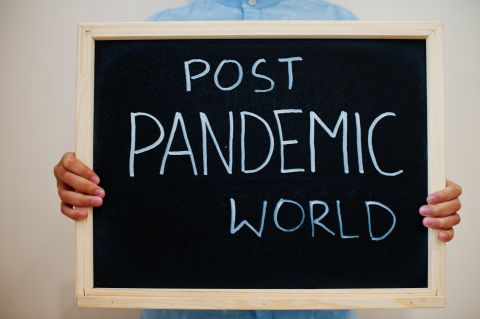Will the Experience of Covid Change School PE?

In a time of unprecedented turbulence, and social change, little is unimpacted. Physical Education in schools is no exception. Many schools, and teachers, are critically evaluating the place and purpose of this as a compulsory experience for all pupils within the timetable.
One reason is undoubtedly the absence of the pressures of the usual school programmes, especially the requirement to prepare teams for inter-school competition. This has resulted in greater capacity for reflection and innovation. There is also a prevailing atmosphere of reconsideration: so many regular operating practices have been suspended for so long that the question arises as to whether they should be restored intact as soon as possible, or whether they may be a better way of doing things. In the parlance of the day, a re-boot becomes possible, and even desirable.
Thirdly, however, is the nagging feeling that core PE lessons might have fallen behind their more glamorous cousins in school sport, where the drive to improve coaching standards and methods has been constant. Improving the coaching of games has commanded the attention and creativity of schools for some years. Inevitably, an industry has grown up to support innovation, and a virtuous cycle of improvement emerges. This has not been reflected in developments in PE teaching.
The pandemic has started to change that. There are emerging twin awarenesses – that PE provision could be better, and that its content might be made more relevant to a Covid-world. As a result, schools are experimenting with new approaches, and establishing collaborative networks at a rate previously unknown. The skills-based approach which has dominated recent years is being exposed as inadequate and irrelevant in a world facing unique challenges. Six weeks of badminton, with a different technique focus every week, is within the comfort zone of most teachers, and tacitly accepted by inspectors, but it doesn’t seem to exploit the full potential of this subject, during a crisis which is impacting on both health and activity levels.
So, what are the new approaches? One is certainly centred around physical literacy and fundamental movement. There is a recognition that these are the foundations of any sports skills that come later, but also that sedentary lifestyles do not establish strong movement patterns. If children are going to develop these anywhere, then school PE must be at the heart of this. Another is a focus on health and wellbeing. This surely must be the priority for programmes of the future, enabling pupils to learn the significance of active lifestyles, and providing the skills and attitudes to achieve them.
Additional innovations abound. Leadership skills, communication, mental capacities and social abilities are all subjects of exploratory programmes around the country.
There is gathering momentum, and interesting exchanges of views. However, this drive has not yet reached the tipping point that would be necessary to create an epidemic. An unintended impact of the second wave is that lasting developments to this unique subject may have time to embed themselves as – in the hackneyed expression of the day – “the new normal”